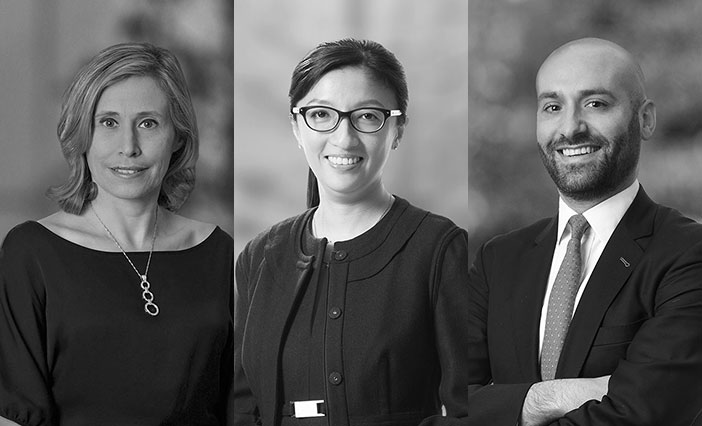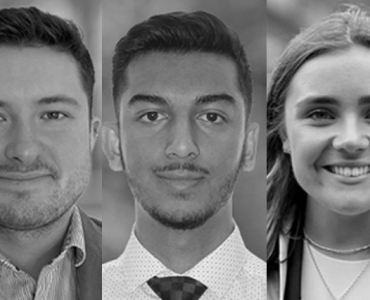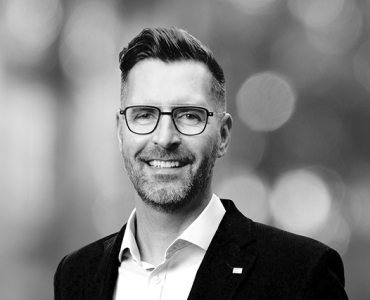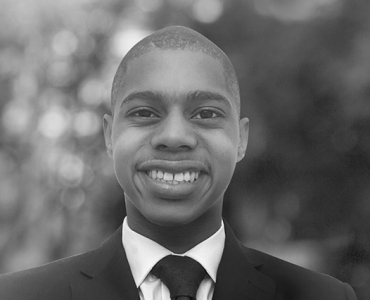
January 2023: "Disability is something that can impact our lives at any time, on a permanent or temporary basis, to ourselves or a family member. It encompasses everything from physical illnesses to neurodiversity to vision or hearing loss, and mental health challenges," explains Shanghai partner Vivian Tsoi.
She says that, as with many other law firms and companies, White & Case is on a journey to deepen Firmwide understanding of disability and what formal and informal support would be most impactful. It all starts with breaking down any perceived taboos: "You can absolutely be a great lawyer as well as being someone who needs to take particular care of their mental health, just as you would your physical health. In my own case, this could be ring-fencing some downtime after a particularly busy period so that I know I will have the opportunity to recharge and get back my equilibrium."
She says that the same applies for all team members. "For more junior colleagues, it's feeling secure that if they confided in their supervisor that they were struggling with their mental health, this would be treated just the same way as a physical issue."
What we're doing as a Firm
White & Case recognizes that disability is often viewed through a very narrow lens, and so we are seeking to broaden understanding of the topic through ongoing educational programming. We have hosted speakers to discuss disability, neurodiversity and chronic illness on World Usability Day, to promote technology, and other assistive tools to harness human potential; to ensure colleagues in need of adjustments are included; and in discussions on the different way disability is defined—such as the social and medical models.
"Disability is something that can happen to anyone at any time"
New York partner Ipek Candan Snyder says that her own experience as a cancer survivor has opened her eyes: "As a young associate, the last thing I was expecting was a cancer diagnosis. It truly made me realize that disability is something that can happen to anyone at any time."
She says that the first of the Firm's values—being human—is a great starting point. "This is a Firm where we want to be supportive of each other, to raise each other up." Ipek points out that post-COVID ways of working have made it easier for people managing their own or others' disabilities, to find a better work-life balance. "If someone really needs to work from home for the sake of their health, there's now less stigma about not being in the office every single day, as hybrid working has become the norm."
Normalizing the experience of disability
In the UK, we are proud to be a part of the Government's "Disability Confident" scheme and are an accredited "Committed" employer. This certifies that we are committed to recruiting, advancing and retaining people with disabilities, and we demonstrate to both colleagues and potential future employees that we treat every person equitably.
Within the Firm, we have also "spotlighted" our colleagues in a series of profiles in which they have shared their personal experiences living with disability and/or chronic ill health, or as the immediate family member of someone who does. This was all part of our ongoing work to normalise these experiences and remove the taboo that is often associated with disability.
We have also run regional Listening Groups for the Americas and EMEA for colleagues with an affinity to experience with disability. These groups often act as a precursor to employee resource networks, and are an informal mechanism for colleagues to connect and build an internal community, while sharing their own lived experiences in an anonymous fashion directly with the Diversity & Inclusion team.
The upside: Leveraging specific advantages of people with disabilities
Something else that is evolving is the negative preconceptions about what neurodivergent people can or cannot do. London partner Daniel Turgel points out that there can be real advantages for neurodivergents in the workplace. "Parts of our jobs often require highly focused attention on complicated documentation. With ADHD, for example, hyper-focused efforts on areas of interest can be a super power."
A recent pilot session of partner training on neurodiversity in London was targeted at the appraisals process, which had been identified as an opportunity to put the learning into practice. It highlighted how to be mindful of neurodiversity and the ways certain specific conditions (including ADHD, Autism, Dyspraxia, and Dyslexia) might present in the workplace, with a view to increasing awareness and understanding of how some colleagues may think and work differently to others.
Daniel adds, "Some neurodivergent tendencies, such as a high-level attention to detail as sometimes manifested on the autistic spectrum, can often get into a more thorough and in-depth analysis, facilitating identification of those fine points of law that can really matter. That's a really valuable skillset on a team, and when we understand it better we can embrace the diversity, optimising overall performance, instead of losing out on all that talent."





